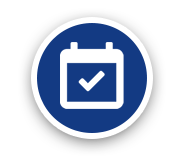Spontaneous coronary artery dissection creates blockages in your heart. It’s different from atherosclerosis—the build-up of fatty deposits in your blood vessels and the most common cause of blocked arteries.
SCAD is a split in the wall of one of your heart’s arteries. This tear creates a loose flap of tissue that can hang down into your artery, blocking blood flow. The separation also lets blood collect between the layers of the artery wall. Over time, a blood clot can form and narrow your artery.
Reduced blood flow from spontaneous coronary artery dissection can cause acute coronary syndrome (ACS). ACS includes a range of heart conditions that cause severe chest pain and discomfort. SCAD can also lead to a heart attack or sudden death if you don’t get timely treatment.
Spontaneous coronary artery dissection can affect anyone at any age, but it’s most common among women in their 40s and 50s. Most people who have SCAD don’t have typical heart disease risk factors like diabetes, high blood pressure or high cholesterol.





